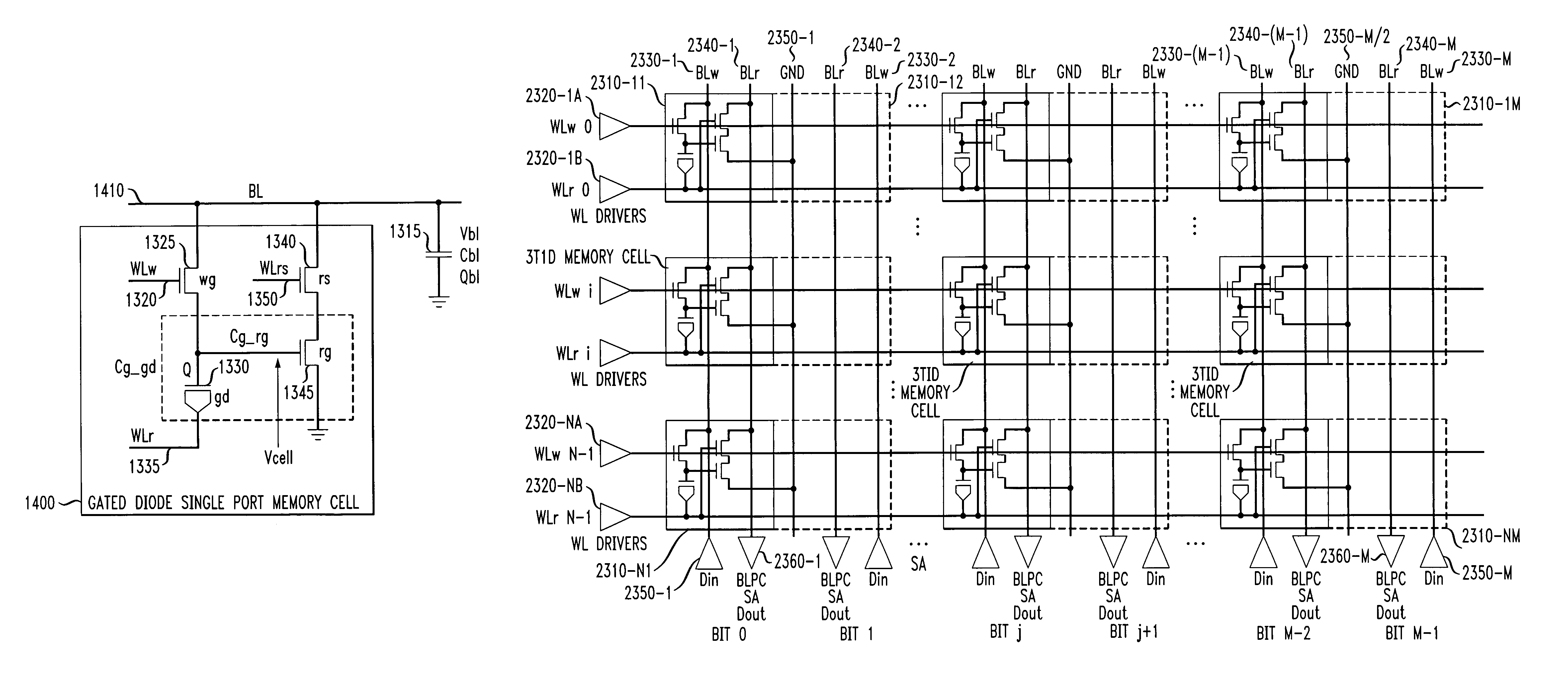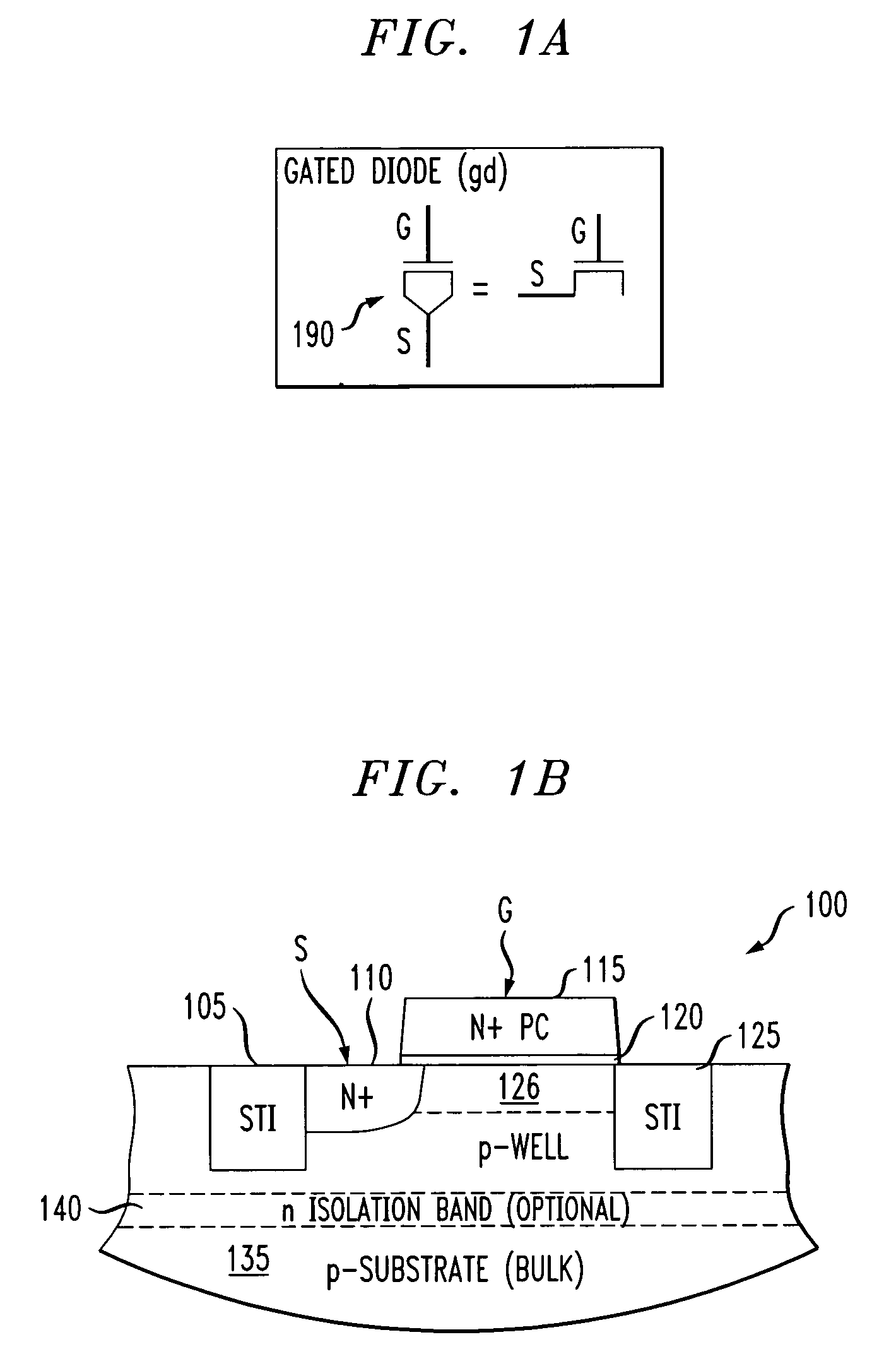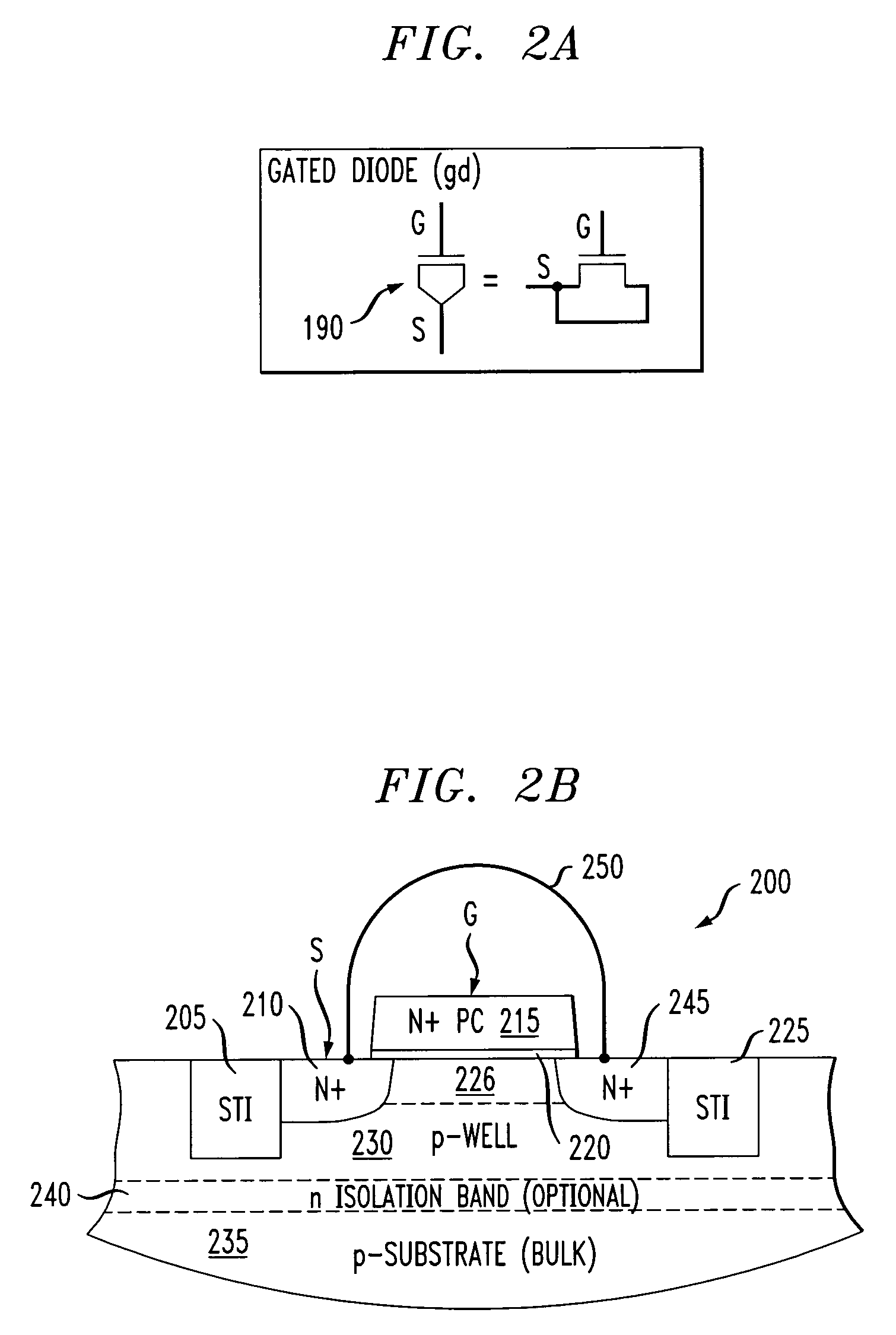3T1D memory cells using gated diodes and methods of use thereof
- Summary
- Abstract
- Description
- Claims
- Application Information
AI Technical Summary
Benefits of technology
Problems solved by technology
Method used
Image
Examples
Embodiment Construction
[0049]This disclosure describes high speed, non-destructive read memory cells based on gated diodes, and associated arrays and silicon structures that can be readily implemented in regular logic-based bulk silicon and Silicon-On-Insulator (SOI). The target performance of the memory cells can be comparable to or even better than Static Random Access Memory (SRAM) speed, but can occupy an area 50 to 70 percent of that of SRAM for the same generation of technology. Due to a high gain characteristic of the memory cell itself, the memory can operate at a much lower supply voltage, much less than that required by conventional Dynamic Random Access Memory (DRAM) and SRAM. An important emphasis herein is on the high speed aspects of the memory cells and architecture, with sufficient retention time and low soft error rate in mind.
[0050]For ease of reference, the following disclosure is separated into the following sections: Introduction and Gated Diode Structures; Gated Diode Circuits; 3T1D ...
PUM
 Login to View More
Login to View More Abstract
Description
Claims
Application Information
 Login to View More
Login to View More - R&D
- Intellectual Property
- Life Sciences
- Materials
- Tech Scout
- Unparalleled Data Quality
- Higher Quality Content
- 60% Fewer Hallucinations
Browse by: Latest US Patents, China's latest patents, Technical Efficacy Thesaurus, Application Domain, Technology Topic, Popular Technical Reports.
© 2025 PatSnap. All rights reserved.Legal|Privacy policy|Modern Slavery Act Transparency Statement|Sitemap|About US| Contact US: help@patsnap.com



